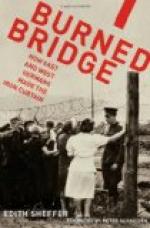If he stayed there it would just about take his quarterly salary to supply him with plain food and the heavier clothing he needed. But—he drew a long breath and asked himself one day why he should stay there. Why should he? He could not forbear a wry grimace when he tried to see himself carrying out his appointed task faithfully to the end—preaching vainly to uncomprehending ears month after month, year after year, stagnating mentally and suffocating spiritually in those silent forests where God and godly living was not a factor at all; where food, clothing, and shelter loomed bigger than anything else, because until these primary needs were satisfied a man could not rise above the status of a hungry animal.
Yet he shrank from giving up the ministry. He had been bred to it, his destiny sedulously shaped toward that end by the maiden aunts and the theological schools. It was, in effect, his trade. He could scarcely look equably upon a future apart from prayer meetings, from Bible classes, from carefully thought out and eloquently delivered sermons. He felt like a renegade when he considered quitting that chosen field. But he felt also that it was a field in which he had no business now.
He was still in this uncertain frame of mind a few days later when he borrowed a canoe from Lachlan and set out for the Fort. He had kept away from Carr’s for nearly five weeks. Neither Sophie nor her father had come to his cabin again. Once or twice he had hailed Carr from a distance. In the height of his loneliness he had traversed the half-mile to Tommy Ashe’s shack up Lone Moose, only to find it deserted. He learned later that Lachlan’s oldest son and Ashe had gone partners to run a line of traps away to the north of the village. It occurred to Thompson that he might do the same—if—well, he would see about that when he got home from Pachugan.
The birch bark Lachlan let him have occasioned him many a rare tussle before he finally beached it at the Fort. The fall winds were roughening the lake. It was his first single-handed essay with the paddle. But he derived a certain satisfaction from winning alone against wind and water, and also gained food for thought in the odd circumstance of his growing tendency to get a glow out of purely physical achievements. It did not irk nor worry him now to sweat and strain for hours on end. Instead, he found in that continued, concentrated muscular effort a happy release from troublesome reflection.
His cheque was waiting. As he fingered the green slip whose face value was one hundred and twenty dollars, one fourth of his yearly stipend, he felt relieved, and at the same time oddly reluctant. Not until late in the evening did he get at the root of that reluctance. MacLeod had hospitably insisted on putting him up. They sat in the factor’s living room before a great roaring fireplace. Their talk had lapsed into silence. MacLeod leaned back in his chair, pipe in hand, frowning abstractedly.




